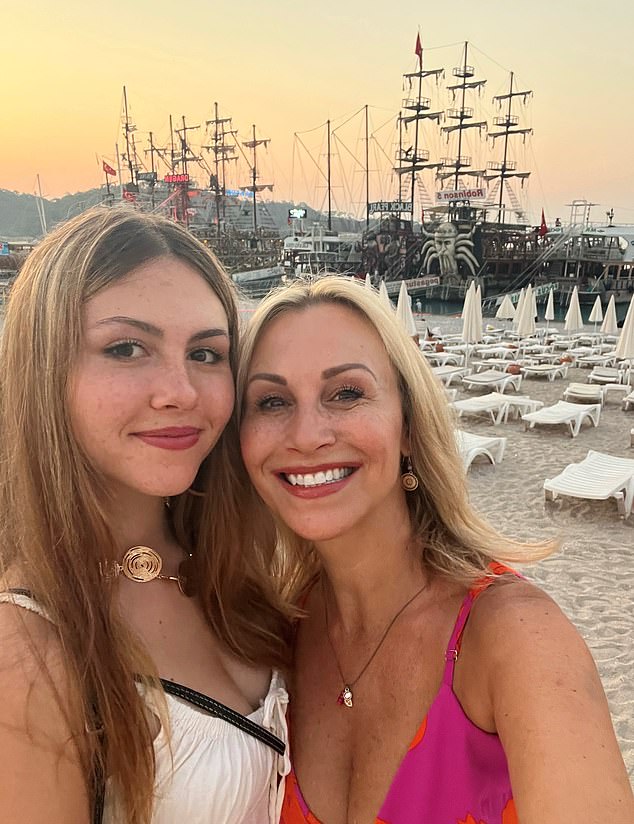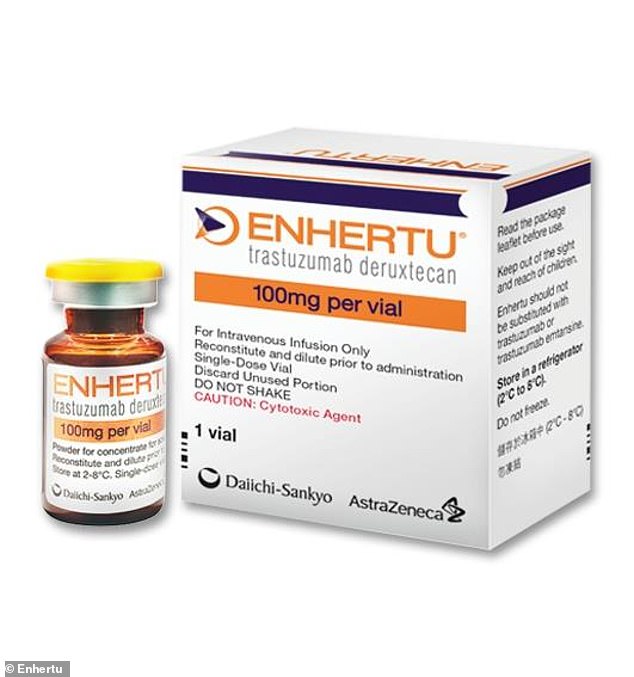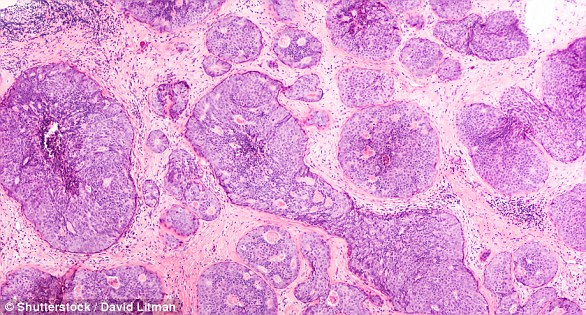A drug denied to thousands of women with incurable breast cancer could increase survival time by more than a third, new research suggests.
Results from the latest trial found that Enhertu reduced the chances of terminal breast cancer growing or spreading by 38 percent compared to standard chemotherapy.
Charities and campaigners said the new findings add to a sense of “betrayal and disbelief” that they cannot get it on NHS England when it is available in Scotland.
This follows a decision by NICE in March to reject the “wonder drug” on cost grounds using new criteria that do not classify all terminal cancers as “serious”.
Women with HER2-low or ultra-low breast cancer lived without their cancer growing for an average of 13.2 months, compared with just 8.1 months among those who received chemotherapy.
Sophie Blake, 51, from Brighton, was diagnosed with breast cancer in December 2020 before being told it had spread to other places, including her lungs and liver, in May 2022.

Sophie, pictured with her daughter Maya, 17, a music school student, said: “I want to see my daughter go to university, get married and have children. Enhertu could make that difference for women.”
Survival rates after 12 months were 87 percent versus 81.1 percent respectively, according to the study of nearly 900 women.
The trial, presented at the American Society of Clinical Oncology (ASCO) conference, revealed that the equivalent of six in 10 patients responded to Enhertu’s treatment, twice as many as chemotherapy.
The findings build on previous studies that found the treatment improved overall survival rates by more than six months.
Patients said they were forced to spend their final months or years fighting for access to a drug available in 13 other European countries, as well as the United States and Canada.
Sophie Blake, 51, from Brighton, was diagnosed with breast cancer in December 2020 before being told it had spread to other places, including her lungs and liver, in May 2022.
Although the former television presenter’s cancer is currently under control, this would be a last line of treatment if necessary.
She said: ‘This is further evidence of the precious extra time this treatment could give us.
‘When we are so limited with the options available, it is particularly devastating.
‘We know women in Scotland whose lives have changed, it’s not just an extension but also the quality of life.
‘For us, these wonderful drugs are everything. I want to see my daughter go to college, get married and have children. Enhertu could make that difference for women.
‘We are mothers, we are sisters, we are daughters, we are workers, we contribute to society, but we are old and our lives are not considered profitable.
‘The most frustrating thing is that we know it’s there, but they just don’t give it to us.
“When we should be enjoying the time we have left with our friends and family, it seems as if we have to spend it fighting for our right to life.”

Patients said they were forced to spend their final months or years fighting for access to a drug available in 13 other European countries, as well as the United States and Canada.
Known as trastuzumab deruxtecan, it is the first targeted treatment authorized for patients with a type of cancer, known as HER2-low, that cannot be removed surgically or that has spread.
While Enhertu has been authorized for patients with HER2-positive breast cancer in England, access has been denied to those with lower levels of the protein, despite results showing it is equally effective.
Around 1,000 women each year in England could benefit from the drug, which patients described as “the ultimate roll of the dice”.
Dr. Giuseppe Curiglian, a professor of medical oncology at the University of Milan and author of the latest findings, said the drug “could become the new standard of care” for the disease.
He said: “Participants who received trastuzumab deruxtecan lived longer without their disease progressing or causing death,” he said, adding that the trial showed for the first time benefits in patients with HER2-ultralow and in those who had never received chemotherapy. .
A Breast Cancer Now petition has more than 260,000 signatures asking for it to be made available to these women.
Dr Simon Vincent, director of research at Breast Cancer Now, said it was “completely unacceptable” that thousands of women were being “denied access”.
He said: ‘This promising study suggests that even more people could benefit from Enhertu.
“However, despite growing clinical data emerging about the clear benefit Enhertu could bring to patients, thousands of people with HER2-low secondary breast cancer are being denied access to Enhertu in the NHS in England.” , and this is absolutely unacceptable.”
“These people are desperately counting on NICE, NHS England, Daiichi Sankyo and AstraZeneca to find a solution in their current discussions and urgently make this treatment available to them.”
A NICE spokesperson said it was “extremely disappointed” it could not recommend Enhertu for advanced HER2-low breast cancer due to cost reasons, adding it had “paused” the guidance.
Health officials said talks with Daiichi Sankyo and AstraZeneca were continuing, but said in a meeting last month that the drug makers had raised the drug’s proposed price.
He said: “As we made clear during our oral evidence session before the recent Health Select Committee, a price that makes cost-effective use of NHS resources offered by Daiichi Sankyo and AstraZeneca could solve this problem almost immediately.
“This is the fastest and only guaranteed way to ensure women have access to this treatment without further delay.”


